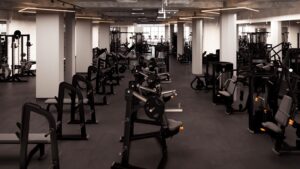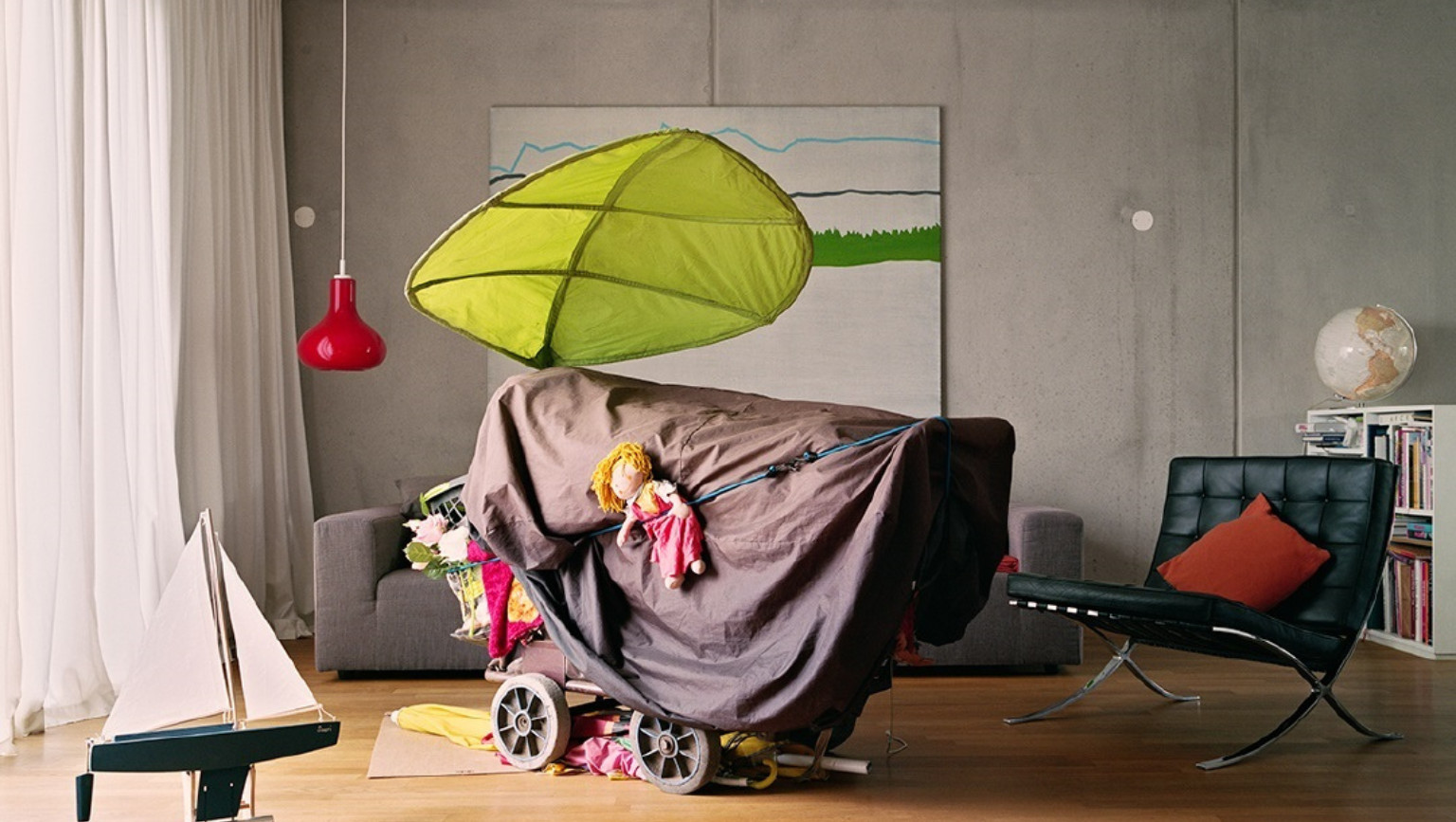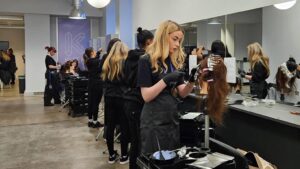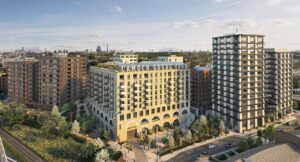
The Basement Gym + Studio opens in Camden Town
Camdenist readers get 50% off their first month’s membership, too

Motherhood is a global experience. Yet so many facets of parenting remain hidden, including in the art world where parents are often underrepresented and barely supported. Procreate Project seeks to make practicing art more accessible through spaces like Mother House Studios, an artist studio with integrated childcare in Catford, and events like the Mother Art Prize, which showcases work by mothers and parents across the world. This year’s exhibition is hosted by Zabludowicz Collection and is free to visit. We talk to Dyana, Founder and Creative Director, and Paola, Director and Curator, about how the project was born, the links between creativity and pregnancy and the challenges faced by parents looking to reclaim their practice after childbirth.
How did Procreate Project start?
Dyana: Procreate Project started alongside my pregnancy and my move to the UK from Italy. I had this desire for creative outlets that contrasted with previous ideas I had of pregnancy and becoming a mother, given the sociocultural landscape that I was brought up in. It came as a surprise to experience an empowering and creative pregnancy. I started researching about increased creativity, the creation of life and the transformation of the body. At the time, I hadn’t found much apart from a researcher in America called Craig Kinsley who was looking into the neuroscience behind it. It became clear that there was no infrastructure or arts organisation supporting the development and continuity of making for artists during this crucial time. The project started from an online post, saying, hey, are you feeling this way? If so, connect with me. I was alone in the UK. I didn’t know anybody. This became my way to reinvent myself in a new country, in a completely new life-changing moment.
Paola: When I approached Dyana, I was in a career crisis. I’d been working for big institutions as a gallery manager, and I had pushed maternity to later in life because I wanted to have a career first. I knew that if I left work early, it would have been difficult. When I had my child, I felt the urge to go back to my passion and the artwork. I’m not an artist, I’m an art curator, but I couldn’t live without doing things. I looked into what kind of support there was for women in the arts, perhaps coworking spaces I could go to with my child. The first organisation I found was Procreate Project. Since 2018, we have worked together to create the support that we didn’t have ourselves.

What are some of the biggest challenges facing parents and mothers who are artists?
D: There is a lack of representation and support for artist parents, mothers primarily, who are combining a career with parenting. Whilst we’re inclusive of a constellation of circumstances, identities and choices, there is an urge to mention mother alongside parent because there is still a gender gap. I was talking with a young actress the other day who told me, I’m terrified, I don’t want to have children because I think that will mean the end of my career completely. The parents around me have changed their identity, they have stopped working and it’s not appealing to me. It’s incredible to see how there still isn’t enough visibility when it comes to people who are making it work, who have an incredible artistic practice, whether in or outside the home, whilst raising children. There isn’t enough to show people without children that they do have a choice.
Then there is the challenge of space. That’s what we offer artists through the Mother House Studios, piloted in 2016 and 17. It’s an opportunity to stop that gap in the CV and to continue making while having small children. Space and affordability are big elements that stop artists from being present within their practice and the scenes they once occupied.
There is also an issue around how we perceive success. The art world runs with this idea of a successful artist being always available and reaching the big walls in major art galleries. This might be less visible than the lack of space, but it adds to the diminishing confidence that often happens when artists become mothers and parents. They lose touch with their artistic identity, and it’s exacerbated by the pressure of what they’re supposed to make, how they’re supposed to make it, and where they are supposed to arrive. Combine that with the new needs of an artist that is raising children and it becomes an impossible mission. I could go on…
P: During the Mother Art Prize in 2020, one of the finalists was an amazing painter in her seventies. She hadn’t painted for forty years, until her three children were in college. When we were preparing the exhibition she said, I’m not so sure I’m great at it. I’m doing things but I’m so judgmental about it that I’m afraid of showing the work. This is the first time I’ve had a show. As Dyana says, some artists lose their confidence because once you stop your practice, you feel like you’re not an artist anymore because you’ve been doing something completely different. Taking care of a small child is very intense. You tend to put everything else to one side.
The art world isn’t structured to support parents. I feel we are finally talking about domestic labour more after the pandemic because it was revealed. Most events, openings, networking, happen in the evening, usually after six o’clock when people put their children to bed. Sometimes exhibitions are not child-friendly, residencies don’t allow families. At Procreate Project, part of our mission is making sure there is always space for children to play at exhibitions while parents engage in conversations. We start openings at 4pm so people can come straight after school and we aim to have openings on Saturdays or Fridays, so children don’t have to go to school the day after. We pay attention to how we can make sure that there are more chances for families to engage in art events and be involved in what’s happening around them.

Is there anything particularly memorable or surprising that you’ve learned since beginning the project that you weren’t expecting to encounter?
P: Motherhood is such as a varied experience and we don’t talk about it enough. It still surprises me that it’s not out there as much as it should be. It’s becoming more known now, thanks to the efforts of brave and ground-breaking artists. It takes a lot of effort to talk about it, when it should just be part of our human experience.
D: That’s been centre for the Mother Art Prize. How do we normalise this experience as part of an artistic output? How do we value it as worth it? A lot of artists talk about what’s personal and present to them but when it comes to mothering, people feel the need to hide because it’s still taboo, it isn’t trendy enough yet. Despite being a very intersectional and diverse group, we’re still talking about mothers and parents as a niche. The archive we’re running at the moment that occupies different public spaces in the UK, seeks to disrupt this idea. We are not a niche. We all come from a mother.

I’m interested in what Dyana said earlier about creativity and pregnancy and how it inspired the beginning of this project. A while ago my granny told me that, for her, pregnancy and childbirth was creativity at its best. How did that manifest, the extra creativity that you felt? Do you have any sense of why it happens?
D: I’m also a birth doula so I want to acknowledge that there is not one experience that fits all. Many people have physical, emotional and/or hormonal challenges throughout pregnancy so it’s important to specify that this is not something that happens to everyone. For me, it was a really embodied experience that manifested in a lot of visions and ideas. My brain was packed with ideas at every minute and the sensations in my body, it was just alive, everything was happening. One of the first artists that I talked with went from painting to sculpture, and the more their pregnancy advanced, the larger the sculptures became. That’s how it manifested for them. But it depends on your practice, on your expression.
In the beginning, what I really wanted to do was to create an event with pregnant artists in one room making all sorts of art. I was looking for something that could help me put this together, an arts organisation that supported artists throughout pregnancy, and I discovered that there was nothing. I thought, ok, I’m going to create an arts institution that does that.
P: There is research that shows that oestrogen and oxytocin are released during pregnancy and nursing and obviously they enrich parts of our brain, or the way we operate. So there must be something happening internally as well.
D: At the time, I found Craig Kinsley who was supportive of my first vision. He was researching this topic and brought it to one of the world’s conferences on neuroscience, so it was incredible to talk to him.

Has anything stood out to you both from the work in this year’s Mother Art Prize exhibition?
P: This is the fourth edition and we have received 630 applications from 36 countries. This year there are a lot of large-scale installations. It’s exciting to be free to include these huge artworks, given the space at Zabludowicz Collection.
There’s always a fresh approach to recurrent themes. For instance, there is usually work that makes the invisible labour of families, and mothers especially, visible. We also have some work on postnatal depression: one artist has made her personal experience the centre of a surrealistic film. There are also many artists who are interested in engaging with social identity and looking at how the world shapes us, what impact social media has. A lot of artists who are immigrants in America and here in the UK, reflect on how they connect and mix traditional and contemporary culture, their own from the past and the one they live in now.
D: I find the connections and relationships with history and traditions over time, as Paola says, striking. The work offers a window into different cultures and experiences. That’s the most interesting thread between them for me.
Why should everyone come and see the show?
D: Why not? It’s an exhibition that brings incredible conversations together. It’s an amazing space to visit and we are really friendly!
P: When artists become mothers, they don’t necessarily start talking about motherhood, they also continue to explore and question different things. The show speaks to everyone. The works address domestic but also political realities, and everybody can find them interesting from different angles. This year some of the works are absolutely mind blowing.
D: There are twenty one artists and a lot of conversations going on. People can find something that they either visually like, or that they might be touched and changed by.
Visit the free Mother Art Prize exhibition at Zabludowicz Collection until 25th June 2023.

Camdenist readers get 50% off their first month’s membership, too

A brand new hairdressing and barbering academy has landed in Camden Town and is now seeking style-conscious models and enthusiastic trainees

We speak to founder, Sol, about bringing the studio to Kentish Town

Explore the neighbourhood’s brand new neighbourhood